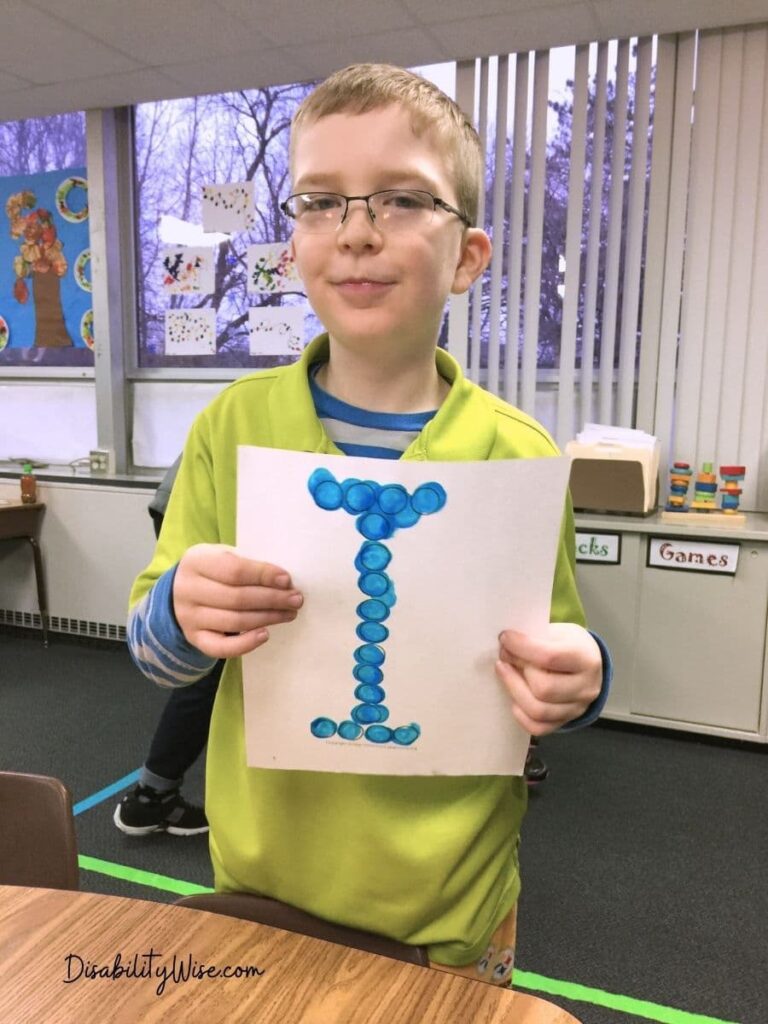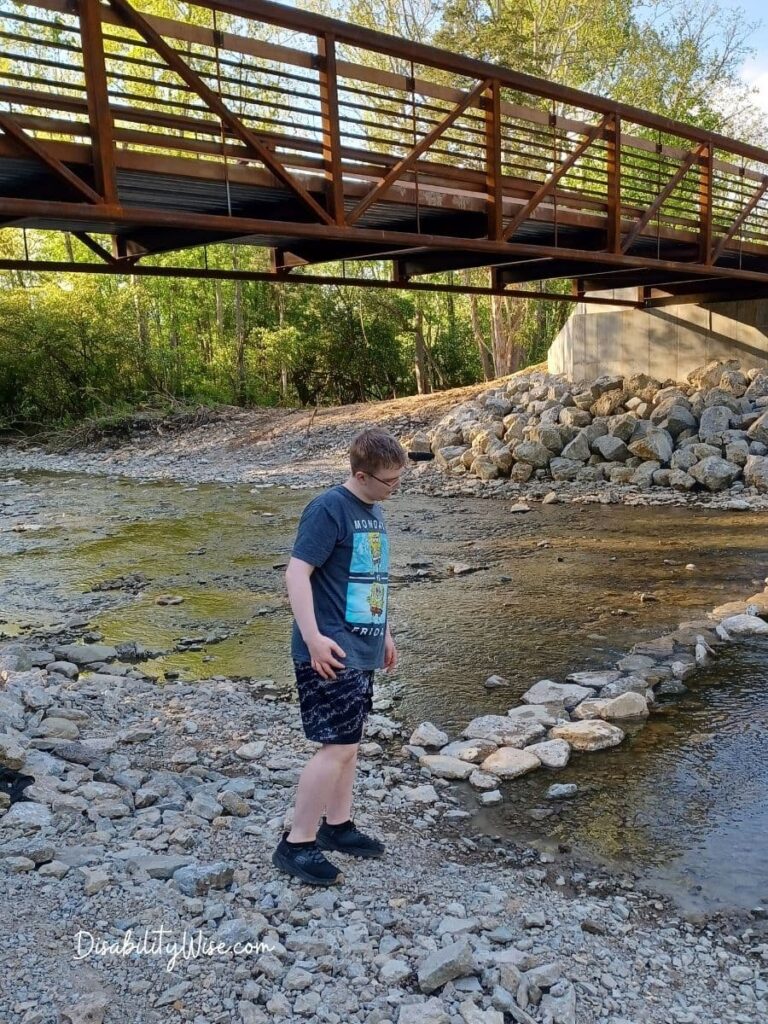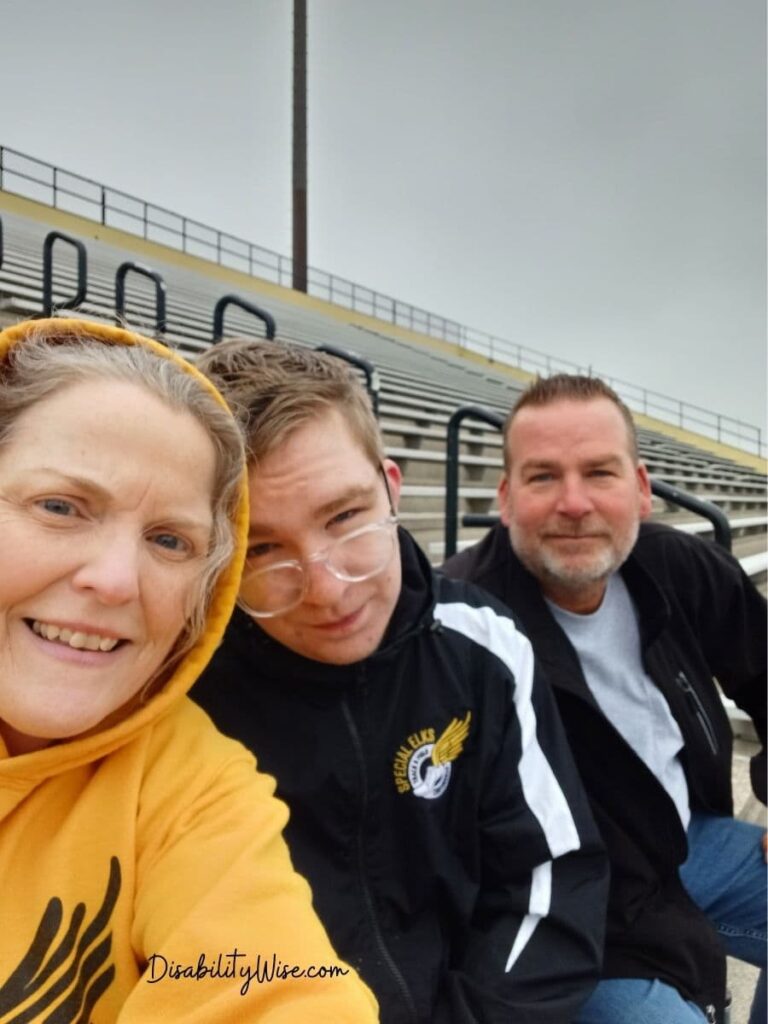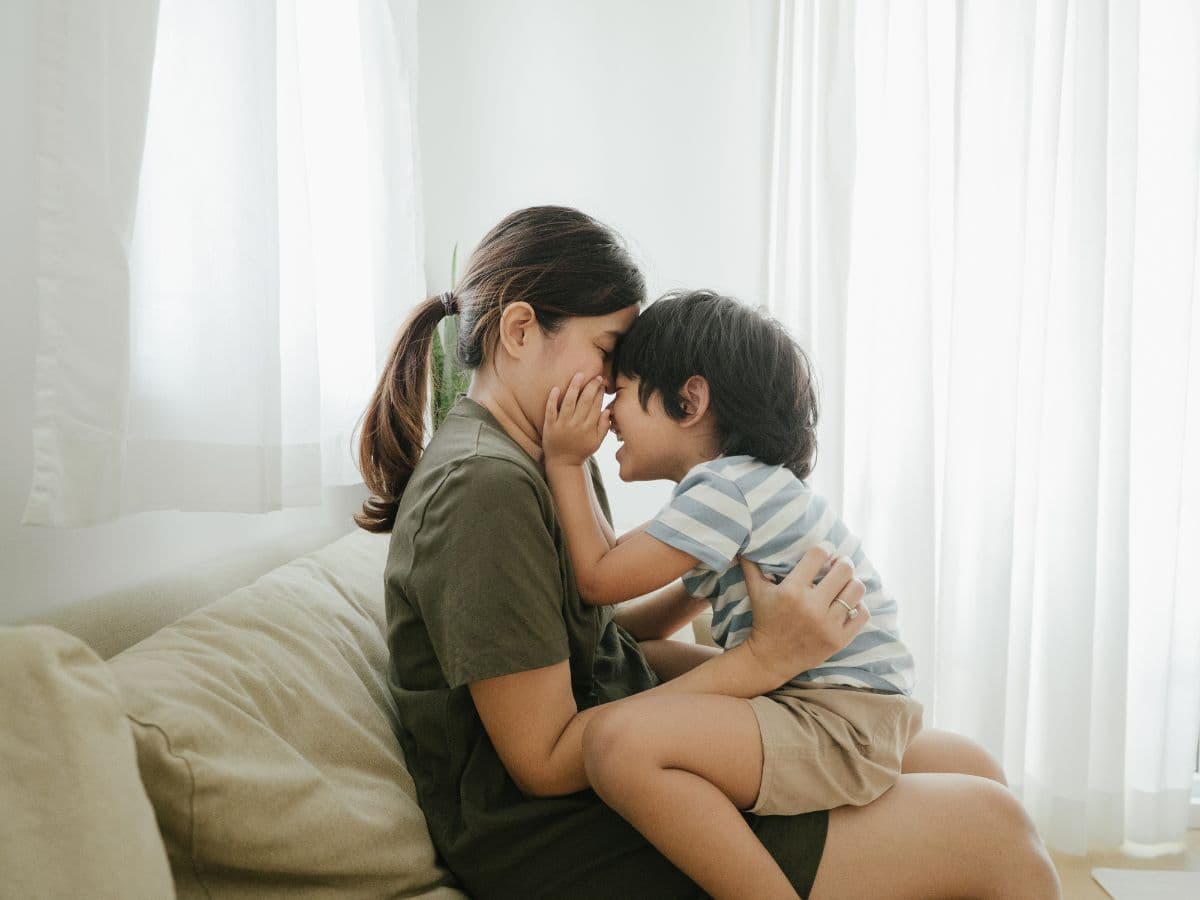We’re going to tackle something that’s both personal and sometimes a bit uncomfortable to talk about—grief and raising a child with a disability.
I remember when I found out our son had a developmental disability. At first, it was like stepping into a world I hadn’t even known existed—so much to learn and understand. It consumed me. I had little time for much else.

It wasn’t until Ian began school that I started to feel a sense of loss. A loss for him, and all the experiences he might miss out on. I found myself grieving the life I had imagined for him, the milestones that now seemed out of reach.
I don’t know about you, but for me, grief sneaks up on me, hitting in waves. Sometimes it surprises me out of nowhere—like when I’m not even thinking about it. It might pop up during a quiet moment or even in the middle of a busy day when something small sparks a memory of what could’ve been.
These random instances remind me that grief isn’t straightforward; it’s more like a twisted road with sudden turns.
The Stages of Grief
You’ve probably heard about the stages of grief—denial, anger, bargaining, depression, and acceptance. They don’t follow a neat order. Sometimes you’re mad, then accepting, then suddenly sad, and back to mad again. And that’s perfectly normal.

Since our son’s birth, over eighteen years ago, I’ve gone through all the stages of grief at least ten times over. And every stage has imparted some kind of lesson.
- Denial has let me hang onto hope until I was ready to face reality.
- Anger pushed me to stand up for my son in ways I never thought imaginable.
- Bargaining steered me away from quick fixes: “If we do this, maybe (fill in the blank) will change,” and helped me regain control.
- Depression, tough as it has been sometimes, has made me more empathetic to others on this journey.
- And acceptance? It’s the most freeing of all.
Acceptance isn’t abandoning dreams; it’s about redefining them.
It’s allowed me to see that the milestones I once imagined for my son aren’t the only way to measure success.
His journey, though different, is uniquely his and filled with joy and accomplishments I might’ve missed if I fixated on what could’ve been.

As we keep moving forward, I believe my son’s life, with all its unique twists and turns, is a beautiful story still unfolding.
Tackling the Challenges of Grief
Without a doubt, this journey takes serious grit. It’s not all sunshine and rainbows over here. There are bumps in the road and extremely tough days.
In moments of doubt, I try to look back on how far we’ve come. Honestly, sometimes I just give myself a pat on the back for simply making it through the day.

On particularly tough days, when grief hits hard, I remember that it’s okay to feel all the emotions that come with it. They’re all valid, and acknowledging them is part of the process. Here’s what’s helped me get through some rough patches.
Lean on Your Crew
Always keep reminding yourself you’re not on this road alone. Reaching out to family, friends, and fellow parents can make a huge difference when riding the wave of grief. Sharing stories, advice, or just lending an ear can lighten your load and offer comfort on tough days.
Celebrate the Small Wins
Every tiny victory, no matter how small it seems to others, shows the hard work you and your child put in every day. Celebrate these wins with pride; they’re the stepping stones to future success.
Finding Strength in Community
Connecting with communities, both online and offline, can be super empowering. These spaces are great for swapping stories, sharing tips, and cheering each other on. They remind us that even though our paths are different, others are dealing with their own stuff, too. There’s comfort in that.
Related: How Caregivers Can Socially Reconnect | Ten Quick Tips to Prevent Caregiver Burnout
Evolving Grief
Here’s the thing about grief: it changes. It evolves. And as it does, so do we.
Grief isn’t just about sadness; it’s also a road to something deeper. It’s about growth and leaning into accepting a different kind of life. The dreams I had for my son might look different now, but they are still dreams worth having and pursuing.

Don’t get me wrong, though—while we learn to accept as we move forward, it doesn’t mean that the experience of grief and loss disappears for parents of children with a disability. The losses we felt a decade ago are now met with new losses.
But the beauty of this journey is that it teaches us to adapt, to appreciate the present, and to rethink what truly matters.
I’m interested in hearing how you navigate through your losses or grief in your journey. Be sure to leave a comment below.
SHARE ON:


